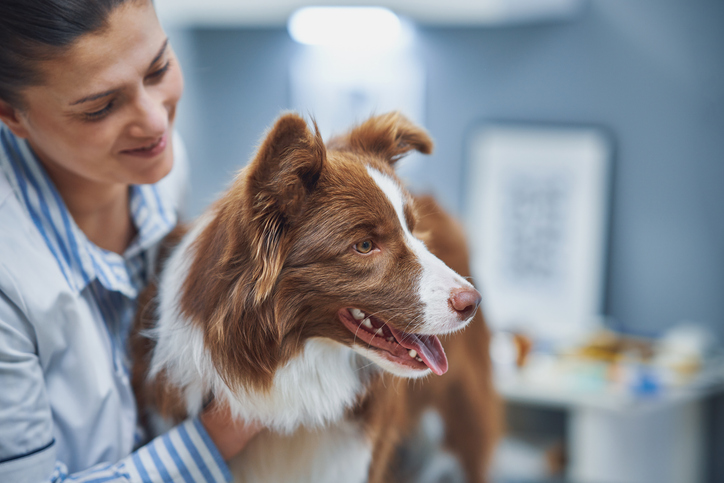
Are you interested in the nutritional needs of animals other than humans? If so, you might want to consider becoming a veterinary nutritionist. An animal’s diet can impact its lifestyle, performance, and ultimate survival. Veterinary nutritionists study the nutritional value and dietary needs and restrictions of all types of animals- large breed, small breed and domestic. While they may specialize in treating one or more types of animal, their education and experiential requirements are vastly different from that of a human nutritionists or registered dietitian/registered dietitian.
What Are the Typical Job Duties and Responsibilities of Veterinary Nutritionists?
Most veterinary nutritionists are Doctors of Veterinary Medicine (DVM) with specialization in the area of animal nutrition. Duties that a veterinary nutritionist may have include, but are not limited to:
- Assessing the medical condition and physical changes in animals
- Creating diets for healthy animals and sick animals
- Balancing food rations for animals on performance-based diets, or for those in production capacities
- Developing special dietary needs to reduce or manage diseases or medical conditions in animals
- Overseeing veterinary nutritional technicians and other staff members
- Participating in private consultations with pet or animal owners, as well as other general veterinary practitioners
Where Do Veterinary Nutritionists Work?
Veterinary nutritionists may work in a variety of settings, such as:
- Private practice
- Private pet food companies
- Manufactures of pet supplements
- Pet and animal pharmaceutical companies
- Zoos
- Veterinary colleges and universities
- Educational research facilities
What Education is Necessary for Veterinary Nutritionists?
The educational road to becoming a veterinary nutritionist is long and challenging, which is one reason that this career choice is designed only for the most dedicated professionals.
Pre-Graduate School Bachelor’s Degree
First, you must obtain a bachelor’s degree in a field related to animal nutrition. This should be attained at an accredited college or university, and should be in a related field, such as:
- Nutrition
- Animal nutrition
- Agriculture
- Biological sciences
- Biochemistry
- Biology
- Animal science
While you are working on your bachelor’s degree, it’s a good idea to pursue volunteer or paid work in animal clinics, shelters or hospitals. This will give you hands-on experience that will be necessary for the next step along your educational pathway towards becoming a veterinary nutritionist. Getting your bachelor’s degree should take four years of full-time study.
Doctor of Veterinary Medicine Degree
Next, you must apply to a Doctor of Veterinary Medicine degree program at an accredited veterinary college or university. Choose an institution that holds accreditation by the American Veterinary Medical Association Council on Education (a list of those colleges and universities can be found here). Completing your DVM degree will take approximately another four years, depending upon whether you study full- or part-time. Many DVM programs will also have course pre-requisites and experiences that you must complete, if not taken during your bachelor’s degree program, before you can begin the DVM program. This can also lengthen your time in the DVM program. Courses that you can expect to take in a DVM program include:
- Integrated animal care
- Professional and clinical skills
- Small animal anatomy
- Physiology
- Veterinary immunology
- Agents of disease
- Pathology
- Animal nutrition
During your third and fourth years of study in a DVM program, you will be applying much of what you have learned in the classroom to clinical experiences. Here is where you might be able to focus more on animal nutrition, as you complete your regular DVM experiential requirements.
At the end of your DVM program, you must pass the American Veterinary Medical Association’s North American Veterinary Licensing Exam. You will also need to become licensed or certified to practice veterinary medicine in your state.
Veterinary Nutritionist Residency Program
After you have become a licensed DVM, you must focus on residency training in animal nutrition. The residency program must be supervised by an existing veterinary nutritionist who is a board-certified diplomate of the American College of Veterinary Nutrition (ACVN). You must complete three years of specific training and one year of clinical experience, plus two years of residency (including research, teaching and clinical veterinary nutrition studies). You must then write and publish an article in a veterinary medicine journal. Finally, you must pass the ACVN examination to become board-certified in animal nutrition.
Upon completion of all of these requirements, you will be granted diplomate status in Veterinary Nutrition, a feat that few have accomplished and one of which you should be proud. As of 2021, there are just 91 diplomates in Veterinary Nutrition in the ACVM. You must periodically complete continuing education to maintain your credentials.
Salary and Job Projections for Veterinary Nutritionists
According to the U.S. Department of Labor Statistics, veterinarians and veterinary nutritionists earn an average salary of $109,920 per year as of May 2021. The top-paying states in which veterinarians and veterinary nutritionists work are:
- District of Columbia $137,370
- Connecticut $134,050
- Rhode Island $129,880
- New York $129,210
- New Jersey $172,360
Job opportunities for veterinarians and veterinary nutritionists are projected to grow by 17 percent from 2020 to 2030. This is much faster than the average projected growth for all other occupations.
Organizations of Interest to Veterinary Nutritionists
The following organizations should be of interest to veterinary nutritionists and to students who wish to enter into this field:
- The American Academy of Veterinary Nutrition– This is an international association of veterinarians, animal nutrition specialists, and veterinary technicians with an interest in animal nutrition.
- Pet Nutrition Alliance– This is an organization designed to improving pet health through proper nutrition.
- AZA Nutrition Advisory Group– This organization represents those who work in animal nutrition and facilitates communication and coordination among them.





